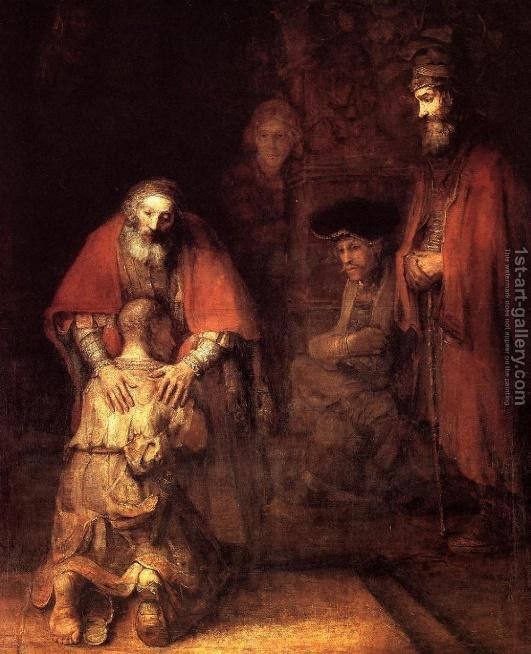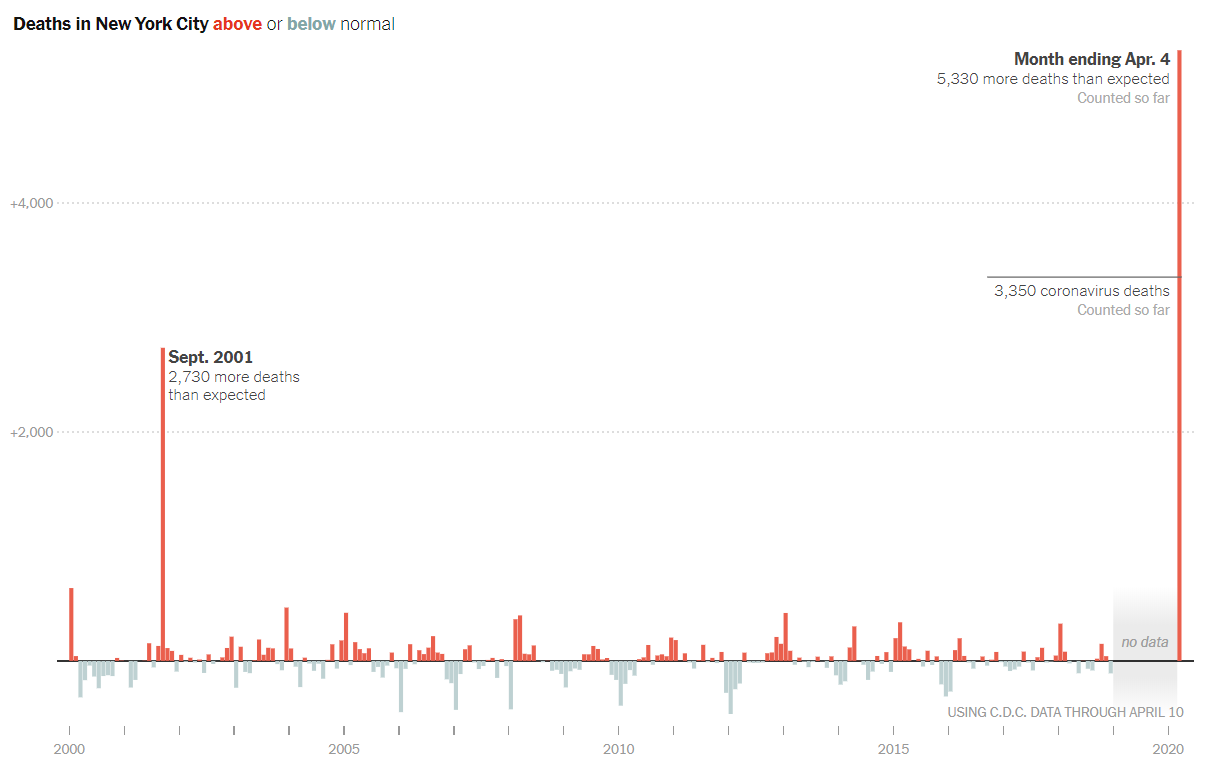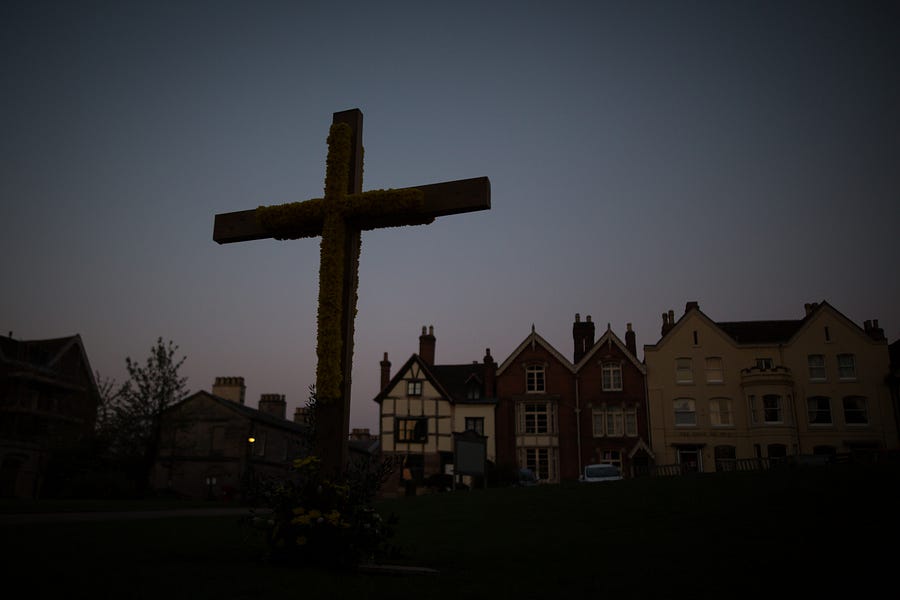When I was young, I confess that I didn’t care much about Easter. I mean, I appreciated it. In the semi-abstract way that many young people who’ve been brought up in the church appreciate the resurrection. You believe in it. You don’t really comprehend it. Belief in the resurrection is one of those boxes you check. Virgin birth? Yup. Sinless in life? Sure. Blameless in death? Absolutely. Resurrection? Of course. I’m a Christian, and that’s what Christians believe.
Young Christians, brought up in church culture, haven’t yet seen or experienced the two profound transformations of Easter weekend. You haven’t seen death, and you haven’t experienced resurrection.
Wait, you say, the first part I get. Young people feel immortal, and unless tragedy strikes their family they don’t see much death, at least not for a long time. The Easter promise of Christ’s triumph over physical death feels abstract until you encounter the heartbreaking dread and apparent finality of a lost life.
You watch a casket lower into the ground. The body of someone you love is inside, and a voice is screaming inside your head. They are gone. You will never see them again. The despair can be unbearable, until the shriek of death is answered by the whisper of truth. They are not gone. They will live. In fact, in the sweep of eternity, their life has barely begun.
But none of us has yet seen that physical resurrection. We wait, in faith and expectation, for that glorious moment. But that doesn’t mean we haven’t seen the dead come back to life. The triumph of Christ over the grave is also the Triumph of Christ over Satan himself. It’s the triumph that rips souls from Satan’s grasp.
One of the joys of attending a Pentecostal or charismatic church (as Nancy and I did for many years) is that you will hear prayers time and time again pleading for the “resurrection power” of Jesus to transform lives. I’ll never in my life forget the first time I saw that resurrection power with my own eyes.
It was a Sunday night, and there was a buzz in the pews because “that kid” was in the church. Lots of churches have “that kid.” He’s the one who grew up in a Christian home yet despises Christianity. He goes out of his way to reject Christ, he indulges in every kind of sin imaginable, and he seems to relish the pain and anguish he causes his parents. Well, this version of “that kid” wasn’t just rebellious, he was angry. He was sometimes violent.
I don’t even remember the sermon that evening. I just remember what happened afterward, as the pastor prayed and appealed to Christ’s resurrection power over the human heart. Everyone heard a single word, choked out through tears.
“Pastor …”
It was “that kid.” He was trying to get to the altar. No, he was trying to rush to the altar. He was in the middle of the pew, and rather than walk to the edge of the pew and come down the aisle, he climbed over the pews in front of him, straight into the pastor’s waiting arms. Then came his parents. They collapsed into a sobbing heap.
One of the most powerful paintings in Western art is Rembrandt’s Return of the Prodigal Son. It so beautifully depicts the tender affection of a loving father along with the humility and repentance of the wayward son.

Now imagine that, except a blue-collar Kentucky family together again, and no bitter older brother anywhere to be found. And how does the story of the prodigal son end? With the father declaring, “It was fitting to celebrate and be glad, for this your brother was dead, and is alive; he was lost, and is found.”
Since then, I’ve seen many people pass from death to life. The closest of friends, completely lost to drugs, who walks into a courthouse the very moment his wife is on the verge of dissolving his marriage. He walks in and admits he is powerless. He is dead in his sin and addiction.
Yet now he lives. Clean for almost 12 years. Still married. And now he spends time with other addicts, telling them that they too can pass from death to life.
I could tell these stories all day. Another of my favorites—a young student is lost and lonely, far from home. She walks past one of those wild-eyed street preachers (we’ve all seen them, and some of them are—to put things mildly—not great). But this one just says to her, “Jesus loves you.”
And instantly, life stirred within her. “Yes he does,” she thought, and she never looked back.
How about one last quick story? There was a young woman from Tennessee, and she too was lost in despair. She had been victimized as a kid by a pedophile preacher. Her best friend died in a terrible car accident. A former boyfriend almost choked her to death in a brutal late-night attack. She hated Christianity. There were times when she felt dead inside.
Then she went to church with her new husband, a man she rushed to marry and barely knew. In Times Square Church in New York City, she heard about Christ’s resurrection power, and the flame of life filled her soul. Everything changed.
That young woman from Tennessee is Nancy, my wife, and she’s alive now and for all eternity because of the event we celebrate today.
I can’t remember an Easter more shrouded in sadness and clouded by grief. Early Saturday, I read a truly heartbreaking story. A mother in Michigan lost her husband and her only child—days apart—to the coronavirus. I read that story as I gaped at a New York Times chart showing the spike in deaths in New York City—a spike that dwarfed the horrible loss on 9/11:

The loss of life has been amplified by the strain on souls as jobs disappear and businesses collapse. Physical death stalks the land. Spiritual despair wells up in human hearts. Yet the resurrection power persists and will overcome.
“He is risen!” Christians proclaim today. And because he rose, we can also declare in faith and hope—so will we.
One last thing …
I was thinking hard about which songs to end with, then someone sent me this Molly Skaggs version of “Ain’t No Grave,” and well, she just crushes it. This stirs my southern heart:
I’m sorry to stay Southern, but every now and then this Tennessee newsletter will show its bias. Here’s Josh Turner with one of my favorite Easter hymns, “How Great Thou Art.” He has a gift:
Photograph by aaron Chown/PA Images/Getty Images.







Please note that we at The Dispatch hold ourselves, our work, and our commenters to a higher standard than other places on the internet. We welcome comments that foster genuine debate or discussion—including comments critical of us or our work—but responses that include ad hominem attacks on fellow Dispatch members or are intended to stoke fear and anger may be moderated.
You are currently using a limited time guest pass and do not have access to commenting. Consider subscribing to join the conversation.
With your membership, you only have the ability to comment on The Morning Dispatch articles. Consider upgrading to join the conversation everywhere.